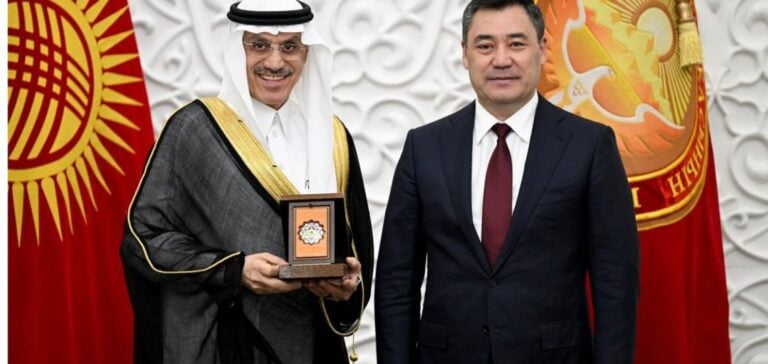The President of Kyrgyzstan, Sadyr Zhaparov, recently proposed that the Islamic Development Bank (IsDB) participate in financing the Kambarata-1 hydroelectric project. This initiative, discussed at a meeting with IsDB President Muhammad Al Jasser, aims to strengthen Kyrgyzstan’s energy capacities and support its economic development. Zhaparov stressed the importance of cooperation with IsDB, a financial institution that has played a significant role in the development of its member countries. A notable example of this collaboration is the “My Home 2021-2026” program, under which IsDB will allocate $79 million to provide affordable housing for around 1,800 Kyrgyz families.
Economic context and financial stakes
Kyrgyzstan has shown stable economic growth in recent years. In 2023, the country’s GDP exceeded one trillion soms (nearly $13.4 billion), marking a major milestone. This economic stability provides a solid basis for investment in crucial infrastructure projects such as Kambarata-1. Muhammad Al Jasser recognized Kyrgyzstan’s economic potential and expressed his willingness to strengthen cooperation in the implementation of large-scale projects. In addition to Kambarata-1, Al Jasser proposed to consider financing small hydroelectric power plant projects, human resources development and support for socially vulnerable families.
Technical and economic characteristics of the Kambarata-1 project
The Kambarata-1 project, located on the Naryn River, is the largest hydroelectric project in Kyrgyzstan. Once completed, it will have a capacity of 1,860 MW and generate 5.6 billion kWh of electricity per year. Preliminary estimates indicate that the dam will reach a height of 256 meters and that the reservoir will hold over 5.4 billion cubic meters of water. The financing of Kambarata-1 represents a strategic opportunity for Kyrgyzstan to strengthen its energy capacity and support its industrial development. By increasing its electricity production, the country can attract more foreign investment and stimulate growth in its manufacturing sector. IsDB, as a financial partner, could play a key role in providing the funds needed to make this project a reality. Collaboration with international financial institutions is crucial to the implementation of large-scale infrastructure projects, enabling us to diversify funding sources and share the associated risks. The Kambarata-1 project represents a crucial step for Kyrgyzstan in its ambition to become a key player in Central Asia’s energy sector. Cooperation with the IsDB could not only speed up the realization of this project, but also pave the way for other similar initiatives, strengthening the country’s economic position on the international stage.






















